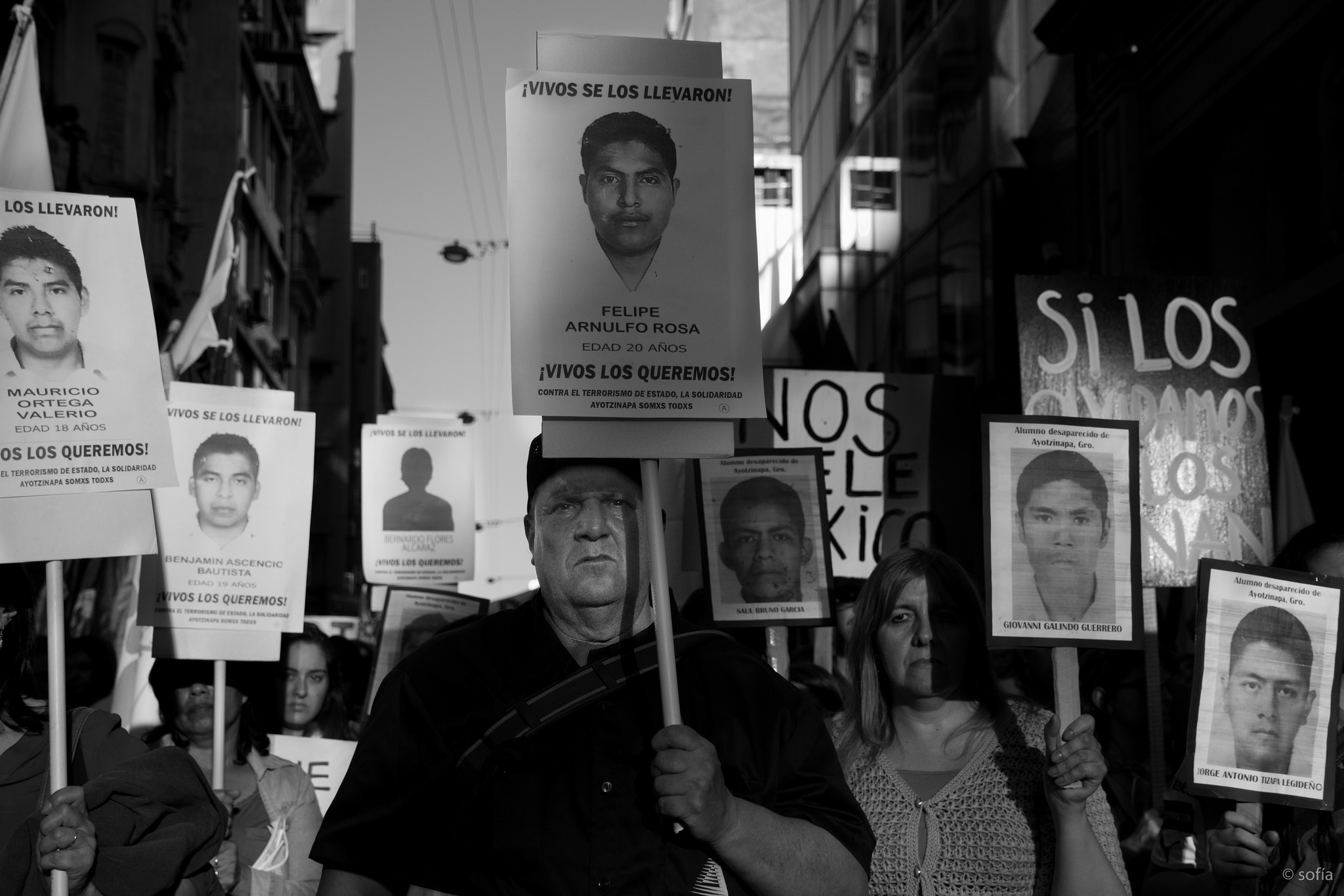Voices of Mexico :: What comes next?

Like an earthquake whose aftershocks are still being felt, in varying intensities. The crisis in Mexico, which began exactly two months ago with the disappearance of 43 students from the Ayotzinapa College, appears to be far from being over. The numerous demonstrations in Mexico, with the burning and vandalizing of government buildings, reflect the level of tension among the population that is demanding answers.
“Alive they were taken. Alive we want them back”, “We are all Ayotzinapa” and “I’m tired of fear” are the main slogans chanted by the crowds that continue to rally at the Zócalo, the main plaza in Mexico City. Not even the arrest of dozens of demonstrators, which according to local organizations have been arbitrary and violent, have managed to cool their spirits.
And the situation could get a lot worse, in the opinion of Miguel Pulido, director of Fundar, a Mexican human rights organization. He said he expects the government to use even more violence to crack down on the growing protests. However, he also raises the possibility that this indignation is a sign that Mexican society no longer tolerates certain human rights violations that until now have been customary. Read more below:
 Conectas – Has the disappearance of the students changed the debate on human rights in Mexico?
Conectas – Has the disappearance of the students changed the debate on human rights in Mexico?
Miguel Pulido – What has changed with the disappearance of the students is that society has started to refuse to tolerate human rights violations as an inevitable consequence of the fight against organized crime. People are starting to discuss, at home, at work, in various places, the high rates of violence, kidnappings and deaths, and their cost to society. Not only has there been a change in the way we deal with these tragedies, but there has been a rejection of the facile explanations and the attempts by the authorities to avoid responsibility.
Society seems to have stopped making comments like “human rights are for right humans, not criminals” and started to understand that social problems need to be resolved not with bullets but by institutions. The problem is that our institutions are not only weak, but they have also been corrupted by links to organized crime and, therefore, radical changes are needed.
 C – What type of responses does society expect from the State at this point?
C – What type of responses does society expect from the State at this point?
MP – The federal government and the political class in general have been perverse in their analysis of the facts. Their efforts have been directed at containing the cost that the demonstrations have had in terms of image, mainly internationally. They will also attempt to control, through the media, the focus of the public debate, through a series of frivolous and shallow accusations between political parties and public officials at various levels.
Also predictable is a period of promises to reform the government, but without any real commitment. Any solution that places the human rights agenda at the center of the discussion must inevitably have a new focus that puts a stop to the institutional structure of corruption and impunity. The human rights crisis we are experiencing derives from a political pact that reproduces and guarantees impunity for the violations. It is important, therefore, to prevent any new reforms from being just another simulation.
C – Do you think the feeling of indignation by society is growing or that it may even have reached a peak?
 MP – The inability and the extreme political and institutional weakness to deal with the crisis has served as an additional motive for social mobilization. I think what will happen in the immediate future is that the State will show its more repressive and authoritarian side. The way it handles the crisis will be to distract attention away from the issue and towards certain forms of protest, as if this were the main point of the debate. The impunity is so scandalous that the police and other security forces will continue to commit human rights violations. These measures are intended to demobilize the population. The challenge facing Mexican society will be to organize so the repression does not have a demobilizing effect, while they keep expressing their indignation on the streets.
MP – The inability and the extreme political and institutional weakness to deal with the crisis has served as an additional motive for social mobilization. I think what will happen in the immediate future is that the State will show its more repressive and authoritarian side. The way it handles the crisis will be to distract attention away from the issue and towards certain forms of protest, as if this were the main point of the debate. The impunity is so scandalous that the police and other security forces will continue to commit human rights violations. These measures are intended to demobilize the population. The challenge facing Mexican society will be to organize so the repression does not have a demobilizing effect, while they keep expressing their indignation on the streets.


